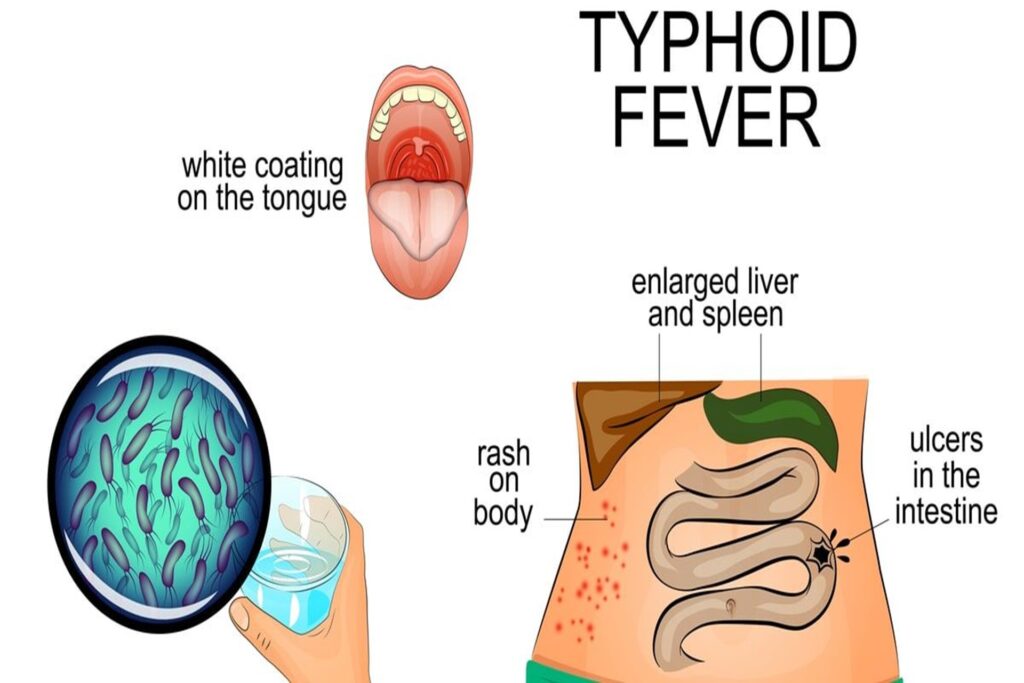
Overview:
Typhoid fever is a bacterial infection caused by Salmonella typhi, which spreads through contaminated food and water. It affects the digestive system and can lead to severe complications if left untreated. Typhoid is common in regions with poor sanitation and hygiene.
Causes:
Typhoid spreads through the ingestion of food or water contaminated with Salmonella typhi bacteria. Poor sanitation, consuming unclean water, and close contact with an infected person increase the risk of infection.
Symptoms:
Common symptoms of typhoid include prolonged high fever, weakness, loss of appetite, abdominal pain, diarrhea or constipation, and headaches. In severe cases, complications like intestinal perforation, internal bleeding, or organ failure can occur.
Treatment:
Typhoid is treated with antibiotics to eliminate the bacteria. In mild cases, oral antibiotics are sufficient, while severe infections may require hospitalization and intravenous (IV) antibiotics. Patients are advised to rest, stay hydrated, and maintain a nutritious diet for faster recovery.
Precautions:
Good hygiene practices, such as washing hands before eating, drinking only purified water, and avoiding street food, help prevent typhoid. Vaccination is also available for people at high risk of exposure.
Prevention:
To prevent typhoid, ensure proper sanitation, drink clean water, and consume properly cooked food. People traveling to high-risk areas should consider getting vaccinated against typhoid.
For expert typhoid treatment, visit KDM Hospital in Lucknow. The hospital provides advanced diagnostic facilities, effective antibiotic treatments, and round-the-clock medical care to ensure complete recovery.
